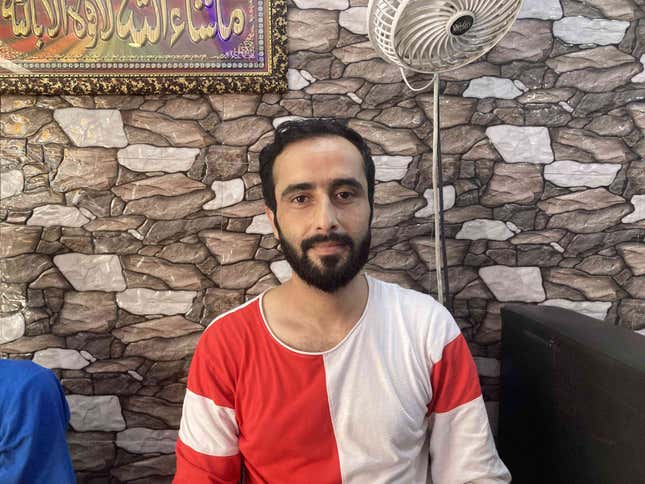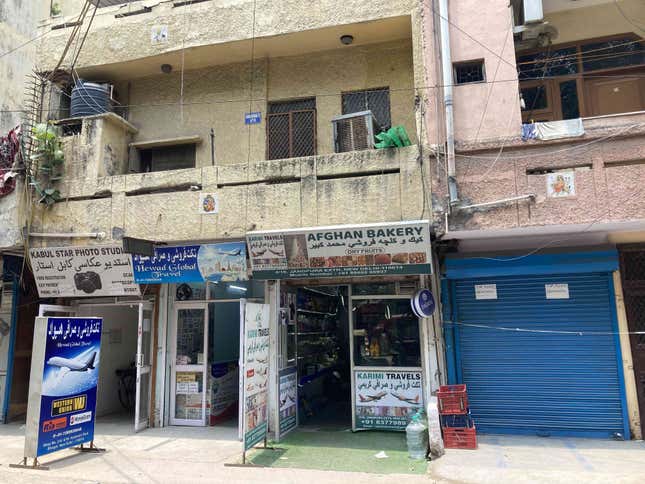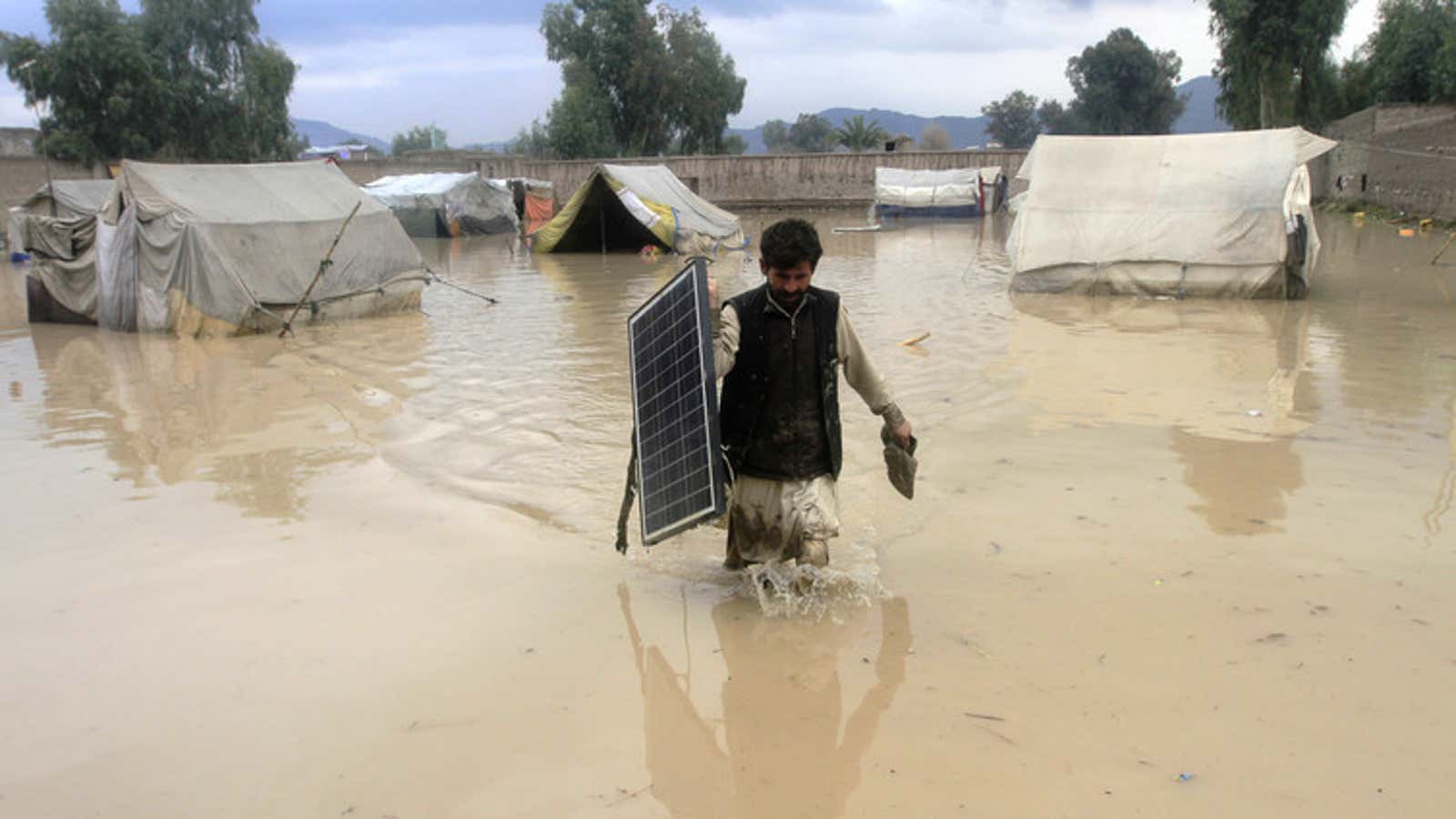It has been over three years since Haroon Mojaddidi fled Kabul, the capital of Afghanistan, and arrived in Delhi to seek refuge from a country ravaged by violence for decades. But news of the Taliban aggressively capturing parts of the country again have made him anxious. “My fiance is still there,” said Mojaddidi, 30, while flashing a gold engagement ring on his finger.
The withdrawal of foreign forces from the country has led to the Taliban making advances to occupy parts of the country. It claims it has occupied nearly 85% of the region but the government has dismissed it as propaganda. The advances and the fresh spate of violence have, however, left more than 5,000 families in the lurch. Most of them have been driven from their homes.
Earlier in February, the Taliban had signed an agreement with the US to prevent insurgents from capturing the two capitals, Kandahar in the south and Badghis in the north. But that seems to have made no difference as both the capitals are currently under siege.
By July 11, India had evacuated its staffers and diplomats from the consulate in Kandahar, Herat, and Jalalabad. The consulate in Mazar-e-Sharif in the north of the country continues to remain functional.
But the conflict between the Afghan military and the Taliban has only intensified. On Friday, Indian photojournalist Danish Siddiqui and a senior military officer were killed in one of the clashes in Kandahar city.
The conflict in the country has spanned over 30 years which has led several families to seek refuge in other countries. In India, Afghan families form 37% of the refugees in the country, according to the United Nations High Commissioner for Refugees. Many of these families reside in Delhi’s neighbourhoods as well, and news of the violence has left them anxious for their relatives back home.

“Stuck between military and Taliban”
Most Afghan families in Delhi run restaurants, bakeries, and other confectionery shops. On the morning of July 15, the Afghan workers at Pakeeza Restaurant in Bhogal, a working-class neighbourhood in Delhi, were huddled in a group watching news reports and videos about attacks in Kandahar city. Most of these workers still had relatives back home.
Mojaddidi, who owns the restaurant, said his relatives in Kabul and Jalalabad were currently seeking a way out. “You cannot live there normally,” he said. “Everyone is trying to leave.”
While in Kabul, he studied engineering and worked as a quality control engineer for the American Embassy in Kabul for over two years. During his time there, there were at least four attacks by the Taliban at the gates of the embassy, he alleged. This, coupled with repeated phone calls from strangers threatening to attack him if he continued working there forced him to leave the country in 2017, he said.
“There is so much difficulty in living and earning there if you are working for the government or for another country’s offices,” he said. “Working in private firms or running a business was nearly impossible as well.”
“You have to give a share of your money to the Taliban if you run any business, and if you work for an international company then you are abused and called kaffir,” he said, referring to the derogatory term used for those who are not Muslim.
Others who had fled the country a while ago said they did not expect any stability in the country. Thirty-six-year-old Wais Ebadi, another refugee who lives in Central Delhi, worried for the safety of his aunt in Kabul.
She is the only relative he has left there after he moved to Delhi with his family nearly nine years ago. Ebadi, who runs a chemist shop in Jangpura in New Delhi, said he wanted to go to Kabul to bring his aunt to Delhi but was unwilling to take the risk. “I do not know who will go back in this situation,” he said.

Another refugee, Omaid Shehrzad, came to Delhi with his mother from Kabul in 2017. Back home, Shehrzad, 27, studied engineering and worked as a data entry officer for an American firm. But that too came with a number of challenges. “We were just stuck between the military and the Taliban there,” he said, adding that his sisters continued to live in Kabul.
Others said they were trying to help their relatives seek refuge in India but were unable to do so. Nineteen year-old Sohrab, came to Delhi five years back with his family and currently worked at a bakery making Rs 300 per day. Fleeing from his home in Kandahar city meant leaving his education halfway, selling off his family’s land and other possessions for the money to travel. He wanted to go back but his relatives there warned him against it.
“It is tough for them to even get water and electricity,” said Sohrab. “They cannot come here because now getting visas has become much more difficult.”
A distant home
Most of these families gave up their homes and started life from scratch as refugees in Delhi. When Mojaddidi came to India four years back, he was unable to find a job that matched his qualifications.
Instead, he used his savings to start importing dry fruits after working on a host of other odd jobs in the city. In April, he bought the restaurant from another Afghan family that went back to the country. While the second wave of Covid-19 infections had slowed down business at the restaurant, there was one thing he was grateful for. “There is much more peace here,” he said.
Shehrzad, who works as a waiter in the restaurant, said he hoped to find work to match his training as an engineer. “I thought I could do something with my life which is why I studied,” he said. “But it has all gone to waste here.”
Other refugees felt similarly but said that the presence of foreign forces in the country made no difference to their lives either. “They came and left at their own wish,” Ebadi said. Ebadi worked as a government official in the education and defence ministry but resisted taking bribes from the Taliban and its associates who wanted him to issue fake education qualification certificates.
But the respite from turmoil over the years and the fresh spate of the region meant that home was still a distant dream for most of these refugees. “I am telling you this [violence] will continue even after 50 years,” said Mojaddidi. “It is like a jungle. I have seen it.”
This story was originally published on Scroll.in. We welcome your comments at ideas.india@qz.com.
